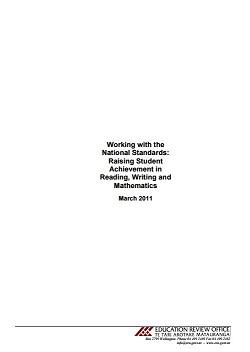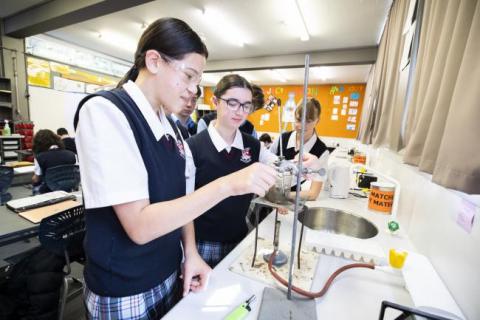Working with the National Standards: Raising student achievement in reading, writing and mathematics
Published: 06 Apr 2011
This is the latest report in the series of ERO's national evaluation reports about the implementation of the National Standards in English-medium schools with students in Years 1 to 8.The evaluation involved 237 schools reviewed by ERO in Terms 3 and 4, 2010. The report indicates that schools are still at varying stages of working with the National Standards.
- Audience:
- Education
- Schools
- Content type:
- Research
- Topics:
- Reading
- Writing
- Mathematics
- Self-review
- National Administrative Guidelines (NAGs)


